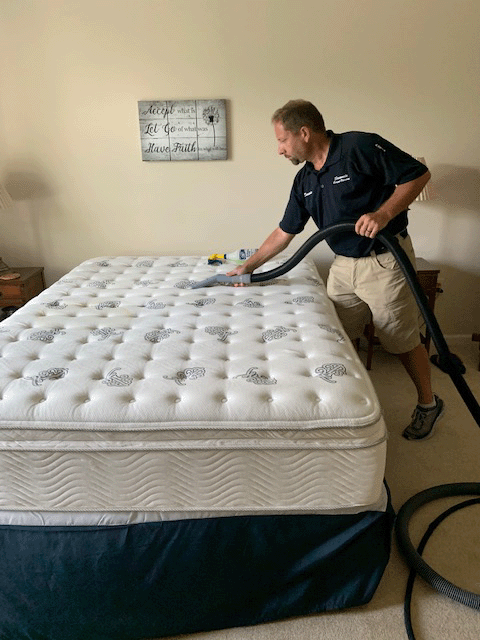Like any other surface we use and come in contact with regularly, mattresses should be cleaned thoroughly. And because it is fair to say that we spend a significant proportion of time in contact with our mattress, this is particularly important.
To make matters worse, many of us, especially children and babies will often wake up with a runny nose, watery eyes, headache or other typical allergy symptoms? In many cases these symptoms are caused by Dust Mites that feed on the dead skin cells we shed while we sleep. These creatures are prevalent in mattresses because of the amount of time we spend sleeping on them.
Statewide Carpet Cleaning, Inc can clean the mattresses in your home and also treat them with an Anti-Allergen Post Spray Treatment. This treatment de-natures dust mite allergens to prevent you from suffering so severely. Dust mite allergies are triggered by proteins found in the mites cast-off body parts, secretions and feces. Decreasing the allergen is effective in reducing the symptoms. Dust mites (or house dust mites) belong to the arachnid family, which also includes spiders, ticks and chiggers.
The mites thrive in warm, humid environments. Because they feed on skin flakes shed by humans and animal dander, dust mites are common in areas populated by people and pets.
Invisible to the human eye, dust mites measure just 1/100 to 1/64 of an inch. Depending on their species, mites live for approximately 30 or 100 days, laying eggs and secreting about 10 to 20 waste particles per day.

Although enlarged photos of dust mites make them appear frightening, dust mites pose only a minor threat to humans. They do not bite or live on humans. Still, for people who are allergic to dust mite proteins, this small pest can cause major suffering.
According to the Environmental Protection Agency (EPA), exposure to dust mites can trigger asthma in children who have not previously exhibited asthma symptoms. Because dust mites flourish year-round in the home, dust mite allergy symptoms are usually not seasonal. Typical dust mite allergy symptoms include:
Sneezing
Runny nose
Irritated eyes
Skin irritation
Asthma symptoms